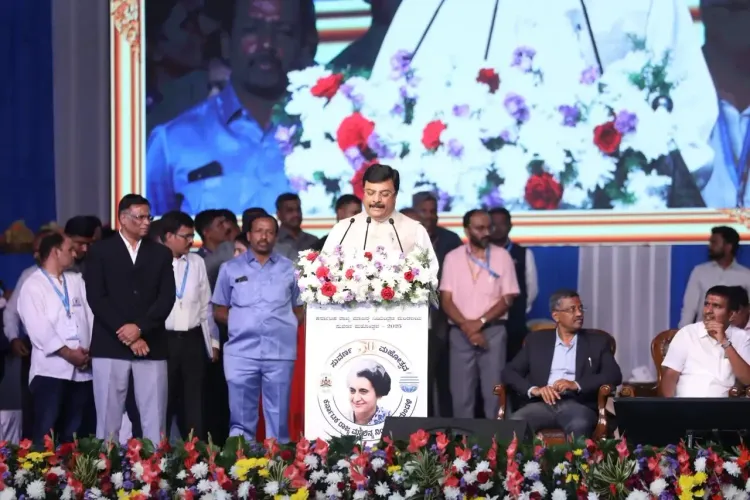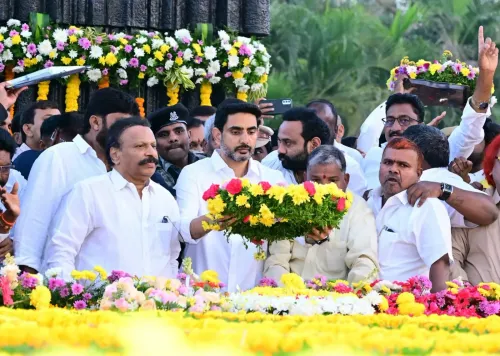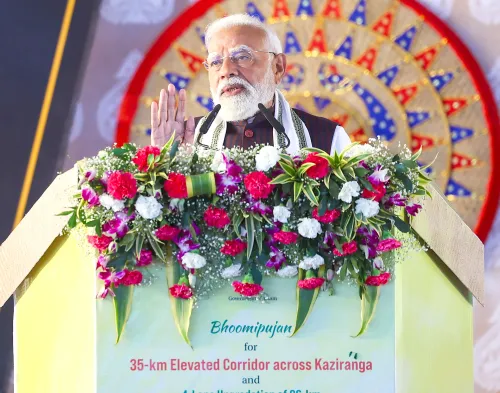How Has the Shakti Free Travel Scheme Aided Pollution Control in Karnataka?

Synopsis
Key Takeaways
- Shakti free travel scheme boosts public transport usage.
- Public transport usage reduces pollution.
- KSPCB aims to improve sewage management.
- Innovative solutions for waste recycling are being encouraged.
- Golden Jubilee focuses on environmental awareness.
Bengaluru, Nov 19 (NationPress) The Chairman of the Karnataka State Pollution Control Board (KSPCB), P. M. Narendraswamy, highlighted that following the implementation of the Karnataka government's notable Shakti free travel scheme, there has been a significant rise in the utilization of public transport by women and the general populace.
He noted that this initiative has positively impacted pollution control, as more individuals opt for public transport.
During the closing ceremony of KSPCB’s Golden Jubilee festivities, Narendraswamy stated that the Shakti scheme has contributed to the reduction of pollution levels. This free travel scheme allows women to ride on RTC buses at no cost, and it stands as one of the five principal guarantee schemes.
Narendraswamy urged Chief Minister Siddaramaiah to instruct district administrations and local bodies to mitigate sewage pollution in rivers, emphasizing that many sewage treatment plants (STPs) across districts are underperforming.
He also mentioned that the Board plans to enhance the number of river water monitoring stations statewide to combat water pollution.
Additionally, he highlighted an innovative approach in Mangaluru district where roads are constructed using waste materials. He appealed to Chief Minister Siddaramaiah to replicate such initiatives in all districts to promote effective recycling of waste.
In Davangere district, efforts are being made to collect and process household plastic waste, which Narendraswamy believes should serve as a model for the entire state.
He called on the Chief Minister to direct all district administrations to tackle the issue of single-use plastics. Furthermore, based on recommendations made during a seminar on Circular Economy and Sustainability—focusing on waste reduction and increased reuse—a proposal will be submitted to the government.
He also acknowledged the legacy of former Prime Minister Rajiv Gandhi, who enacted the Environment Protection Act in 1986 and the National Forest Policy in 1989. He mentioned the Forest Rights Act of 2005, established under the leadership of then UPA Chairperson Sonia Gandhi, and the creation of the National Green Tribunal in 2011, emphasizing the importance of remembering their contributions.
The primary goals of the Golden Jubilee were to enhance public awareness about environmental conservation, strengthen the connection between the Pollution Control Board and citizens, and honor former Prime Minister Indira Gandhi for her role in founding the Board.
Consequently, the celebrations took place not just in Bengaluru, but across 14 locations in 25 districts. The concluding event was held today (Nov. 19), coinciding with Indira Gandhi’s birth anniversary, and included participation from districts such as Bengaluru Urban, Bengaluru Rural, Ramanagara, Tumakuru, Kolar, and Chikkaballapur.










